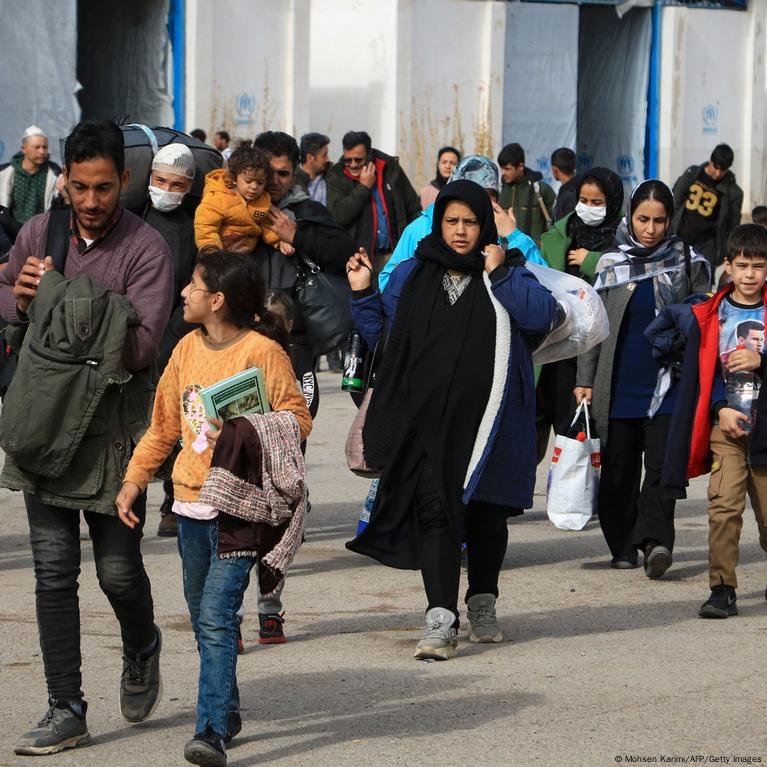Mass Deportations Unfold in Iran
In a shocking turn of events, Iran has expelled over half a million Afghan refugees in just 16 days, marking one of the largest forced migrations of this decade. The United Nations reports that between June 24 and July 9, a staggering 508,426 Afghans have been forcibly returned to Afghanistan, often under dire conditions. This mass deportation comes in the wake of unsubstantiated accusations against Afghan migrants, alleging their involvement in espionage for Israel during a recent conflict. Such claims lack credible evidence, raising serious concerns about the motivations behind these expulsions.
Iran"s Long-standing Afghan Refugee Policy Shifts
Historically, Iran has been a refuge for millions of Afghans fleeing conflict and violence. As noted in a Migration Policy Institute article, Iran has hosted around 3.5 million Afghan refugees, allowing them to integrate into society rather than confining them to camps like many other nations. However, this long-standing policy has dramatically shifted. The Iranian government, citing national security concerns, has ramped up efforts to deport undocumented Afghans, leveraging the current geopolitical tensions as a pretext.

Iran plans to deport 2 million Afghan refugees – DW – 09/14/2024
Humanitarian Crisis at the Border
The situation at the Afghan border is dire. As reported by the BBC, reception centers are overwhelmed, struggling to accommodate the influx of returnees in scorching temperatures exceeding 104 degrees Fahrenheit. The United Nations International Organization for Migration has noted that thousands of returnees are left exposed, with inadequate shelter, food, or water. The sheer number of unaccompanied minors among the deported—around 400 last week alone—underscores the urgent need for international intervention and support.
Violations of Human Rights and Dignity
Reports from deportees reveal harrowing accounts of abuse and extortion within Iranian detention centers. Bashir, a young man recently returned to Afghanistan, recounted being detained and forced to pay hefty bribes for his release, and facing physical abuse while in custody. This aligns with findings from a recent study that highlights the crucial need for healthcare access for Afghan migrants in Iran, a right that has been egregiously violated during these deportations. The Iranian government’s actions not only contravene humanitarian principles but also reflect a broader pattern of systemic discrimination against Afghan migrants.

UN refugee chief urges states to cut reliance on border ...
The Political Implications of Mass Deportations
This aggressive deportation strategy appears to be a calculated move by the Iranian regime to divert attention from internal issues and consolidate power by scapegoating vulnerable populations. Richard Bennett, the UN special rapporteur on Afghanistan, has condemned these actions, highlighting the incitement to discrimination and violence against Afghans in Iranian media. The Iranian government’s narrative portrays Afghan refugees as threats, effectively dehumanizing them and fostering a climate of fear and animosity. Such tactics are reminiscent of other historical instances where marginalized communities have been unjustly blamed for national crises.
The return of over 1.6 million Afghan refugees this year alone, as reported by the Associated Press, signals an impending humanitarian disaster. With Afghanistan still grappling with severe economic hardships and a humanitarian crisis exacerbated by drought, the country is wholly unprepared to accommodate such a massive influx of returnees. The UN High Commissioner for Refugees has warned of dramatic challenges in housing, protecting, and employing these returnees in a nation where 70% of the population lives at subsistence levels.

![[Video] Federal officers deploy sting balls and flash grenades at Whipple Building](/_next/image?url=%2Fapi%2Fimage%2Fthumbnails%2Fthumbnail-1768340555229-vhfcc-thumbnail.jpg&w=3840&q=75)
![[Video] Crowd-control weapons used in Minneapolis as anti-ICE protesters attack police vehicle](/_next/image?url=%2Fapi%2Fimage%2Fthumbnails%2Fthumbnail-1768336302231-akxf7s-thumbnail.jpg&w=3840&q=75)

![[Video] Protests erupt in Minneapolis after ICE detains teenager, multiple arrests made](/_next/image?url=%2Fapi%2Fimage%2Fthumbnails%2Fthumbnail-1768331835371-z9ylqg-thumbnail.jpg&w=3840&q=75)


![[Video] Gunfire between Iraqi security forces and Sadr militias in Baghdad](/_next/image?url=%2Fapi%2Fimage%2Fthumbnails%2Fthumbnail-1768343508874-4redb-thumbnail.jpg&w=3840&q=75)
